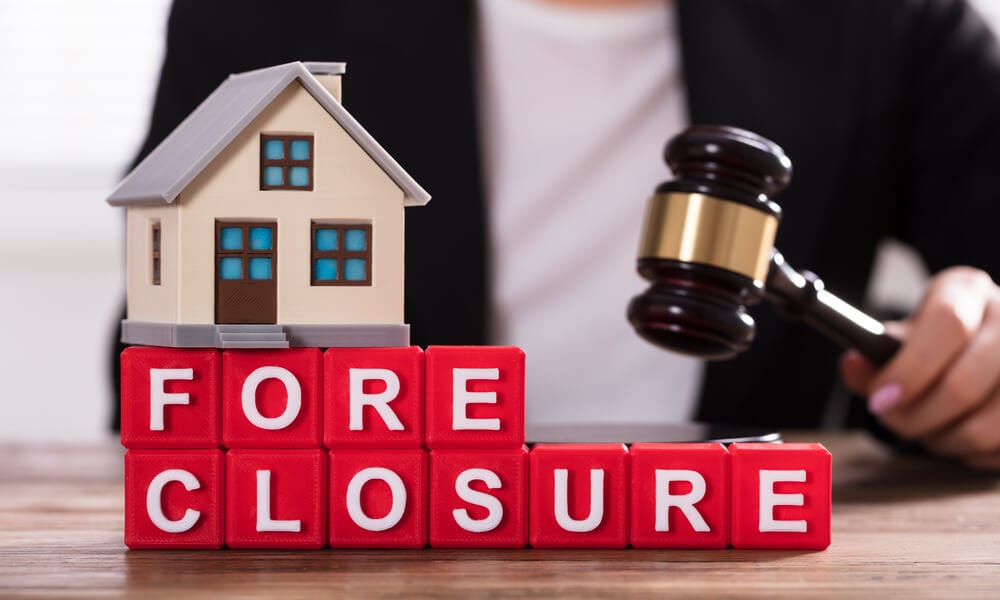Understanding the Foreclosure Process in Atlanta GA

Introduction
If you’re reading this, chances are you’re in a challenging situation, likely facing mounting pressure due to missed mortgage payments, financial instability, or perhaps even receiving a foreclosure notice. This can be a highly stressful and emotional experience. You’re probably searching for answers on how to navigate the foreclosure process in Atlanta, GA, hoping to understand what steps you need to take next, and what options are available to you to avoid losing your home.
You may have concerns about how long the foreclosure process will take, how much it will cost, and what consequences it could have on your financial future. At the same time, you are likely looking for ways to minimize the stress, costs, and long-term impact of foreclosure. The reality is that foreclosure can damage your credit score, add legal fees, and increase your overall financial burden. What you need right now are clear answers to your questions, practical advice on how to avoid foreclosure, and a solid plan to handle your situation with minimal fallout. The truth is, selling your house for cash could be one of the best ways to avoid the complications of foreclosure and get out from under the weight of unpaid mortgage debt.
This blog will walk you through everything you need to know about the foreclosure process in Atlanta, GA, how it impacts you, and how selling to a trusted buyer can be your best option.
The Foreclosure Process in Atlanta, GA: An Overview
Foreclosure is a legal process that allows lenders to reclaim a property when homeowners fail to make their mortgage payments. The process in Atlanta, GA, follows specific legal steps, and understanding each of these steps is crucial for homeowners who want to prevent foreclosure or find alternatives that can help them avoid further financial damage. This section will break down the key stages of foreclosure and how each step impacts you as the homeowner.
The first step in the foreclosure process is typically the Notice of Default (NOD), which is sent by your lender after you’ve missed several mortgage payments. This notice alerts you to the fact that your lender intends to take legal action to foreclose on your property if you don’t resolve the debt. The Notice of Default will give you a timeframe to bring your mortgage payments up to date. If you are unable to pay the debt within this time, the foreclosure process moves to the next stage: the Notice of Sale.
This can be a difficult period for many homeowners, as it might seem like there’s no way out. However, it’s important to remember that there are options available to you. Selling your home quickly could be an effective way to avoid foreclosure and protect your credit score.
Key Stages of the Foreclosure Process in Atlanta, GA
Understanding each stage of the foreclosure process in Atlanta, GA, can help you plan your next steps. Let’s walk through these stages and explore what they mean for you as a homeowner.
- Missed Payments & Notice of Default (NOD)
The first indicator that you may be heading toward foreclosure is missing your mortgage payments. If you’ve missed more than one payment, you may receive a Notice of Default from your lender. This is a formal letter informing you that your mortgage payments are overdue, and the lender intends to take legal action to reclaim the property if payments are not made.
To learn more about the Notice of Default and how it impacts your situation, visit our detailed guide on Foreclosure Notice of Default in Georgia – What Is It?.
- Notice of Sale
If you don’t respond to the NOD by paying your overdue payments or reaching a payment arrangement, the next stage is the Notice of Sale. This notice states that your home will be sold at public auction, typically within 30-60 days of the notice being issued. - Foreclosure Sale
At the foreclosure sale, your home is sold to the highest bidder, which is often the bank or lender that holds your mortgage. If the home is sold at auction for less than what is owed, the bank may seek a deficiency judgment against you, which could leave you with remaining debt even after the sale.
For more in-depth details about Georgia’s foreclosure law and auction sales, check out Nolo’s Guide to Foreclosures in Georgia. This is a highly reputable source that explains the stages in greater detail and offers practical advice.
What Are Your Options During the Foreclosure Process?
Understanding your options during the foreclosure process is crucial. There are several paths available to homeowners in Georgia, and knowing them can help you avoid unnecessary financial strain.
1. Loan Modification
A loan modification is an agreement between you and your lender that changes the terms of your mortgage to make it more affordable. This could involve reducing the interest rate, extending the loan term, or temporarily deferring payments.
2. Short Sale
A short sale happens when the lender agrees to accept less than what you owe on the mortgage, allowing you to sell the property and avoid foreclosure. While a short sale can be a viable solution, it can take months to finalize and may still damage your credit score.
3. Deed in Lieu of Foreclosure
This is when you voluntarily hand over the property to the lender in exchange for a release from the mortgage debt. While it’s less damaging than foreclosure, it can still negatively impact your credit.
4. Sell Your Home for Cash
Selling your home quickly to a trusted real estate investor can often be the best way to avoid the stress and complications of foreclosure. A cash sale can close fast, allowing you to pay off your mortgage and avoid the repercussions of foreclosure. Plus, there are no repairs or fees involved, which can make this an appealing option.
Learn more about short sales and how to negotiate them on Zillow’s Guide to Short Sales. This is an authoritative source for understanding how short sales work.
The Financial Impact of Foreclosure on Your Credit
One of the most significant concerns homeowners face when going through the foreclosure process is the damage it can cause to their credit. Foreclosure can stay on your credit report for up to seven years, significantly lowering your credit score. This can make it difficult to qualify for loans or secure favorable interest rates in the future.
In contrast, selling your home for cash can help you avoid this long-term damage to your credit. By completing a quick sale, you can pay off your mortgage and avoid the foreclosure process altogether. This can give you a fresh start and preserve your credit score, which can be invaluable in the long run.
For more information on how foreclosure impacts your credit score, refer to this detailed article.
Advantages of Selling Your Home for Cash to a Real Estate Investor
While there are other options available during the foreclosure process, selling to a cash buyer offers several unique benefits that make it a standout choice for many homeowners.
1. Speed of Sale
Cash sales typically close much faster than traditional home sales. In many cases, you can sell your home within a matter of weeks, allowing you to avoid prolonged stress and quickly settle your mortgage debt.
2. No Repairs Needed
When selling to a traditional buyer, you may be required to make repairs or upgrades to your home to make it marketable. This is not the case with cash buyers, who will purchase the property as-is, saving you both time and money.
3. Avoid Foreclosure
Selling your home quickly for cash can help you avoid the foreclosure process altogether, protecting your credit score and giving you a clean slate. This is often the most advantageous option when faced with a looming foreclosure sale.
4. No Real Estate Commissions or Fees
Selling through traditional channels often involves paying real estate agent commissions and closing costs. When selling to a cash buyer, these fees are typically eliminated, ensuring that you walk away with more money in your pocket.
For more information on how to stop foreclosure and protect your home, check out our guide on How to Stop the Bank from Foreclosing on Your Georgia House.
Disadvantages of Selling Your Home for Cash
While selling your home for cash offers many advantages, it’s essential to consider the potential drawbacks. For example, cash buyers often offer less than market value for properties, as they take on the risk of repairs and reselling. However, when compared to the costs of foreclosure, this may still be a more cost-effective solution in the long term.
Conclusion: The Smartest Choice When Facing Foreclosure
The foreclosure process in Atlanta, GA, can feel overwhelming, but understanding your options is the first step in navigating this difficult situation. While options like loan modifications or short sales exist, selling your home for cash remains one of the quickest and most effective ways to avoid the negative consequences of foreclosure.
By selling your home to a trusted real estate investor like Trinity REsolutions, you can close the sale quickly, avoid foreclosure, and protect your financial future. The speed and flexibility of cash sales allow for immediate relief, enabling you to move on without the weight of unpaid debt or the long-term damage of foreclosure. If you’re ready to find a solution that works for you, Trinity REsolutions is here to offer a hassle-free, fast sale, giving you a fresh start and peace of mind.
